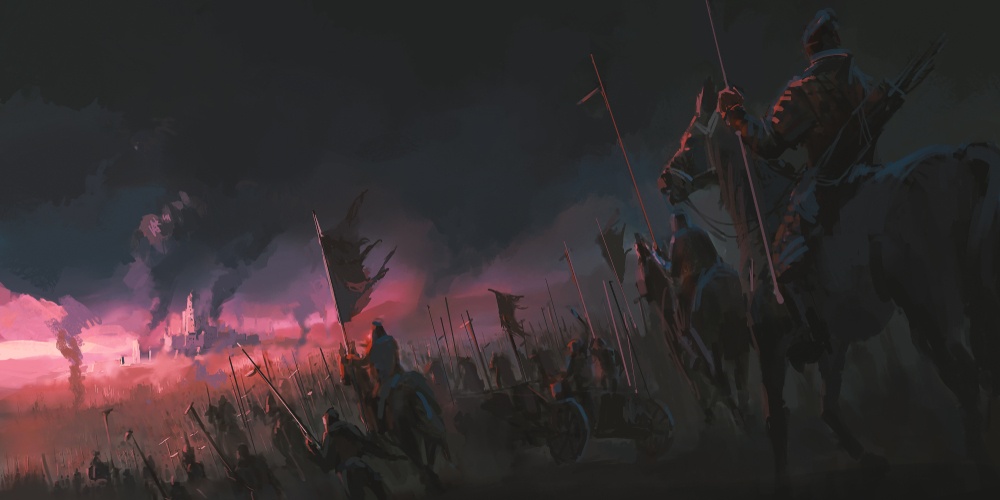Our long sojourn in Egypt was meant to develop those character traits necessary to transform the Jewish people into G-d's special nation. We were to appreciate the need for human freedom, develop our sensitivity towards others--especially the downtrodden--and were to forge a community with a shared history and destiny.
One thing the slavery in Egypt could not prepare us for was war. Lacking any responsibility or even opportunity for the running of a country, the emerging Jewish nation was unprepared, both mentally and physically, to fight a war. The development of the infrastructure of a nation, a country, an army, and a religious centre would have to await our arrival in the land of Israel...and then some. It is no coincidence that a monarchy was not established until hundreds of years after our entry into the land of Israel. The building of a permanent Temple , identifying us a nation in the service of G-d, would take even longer.
It was this lack of ability or even knowledge of how to fight that allowed millions of Jews to become petrified at the sight of just 600 Egyptian chariots. Perhaps the cry of "weren't there enough graves in Egypt ?" (14:11) was a realization that all the miracles and experiences in Egypt did not and could not prepare them for war (see Ibn Ezra 14:13). Moshe responded to the people, saying that "G-d will fight for you, but you will remain silent" (14:15). It was G-d alone who would do "battle" with the Egyptians, a point we emphasize at the Seder. Our role was to move forward and leave the fighting to G-d.
This battle plan is repeated, with slight modifications, at the end of the parsha, with Amalek's brazen and cowardly attack on the Jewish nation. "As long as Moshe held his hands up, Israel would be winning; but as soon as he let his hands down, the battle would go in Amalek's favor" (17:11). As our Rabbis state (Rosh Hashanah 29a), Moshe's raised hands symbolize the Jewish people looking to heaven, understanding that it is G-d who fights our wars.
In the battle with Amalek we get the first hint of a Jewish army that would (appear to) fight naturally. Joshua, who forty years later would lead the Jewish people in conquering the land of Israel, was told to "choose men and prepare for battle against Amalek" (17:9). Nonetheless, the Torah records that the method of victory was the raising of Moshe's hands.
Although G-d was the "Master of War" during the battles with both Egypt and Amalek, there is a fundamental difference in the reaction of the Jewish people to these two wars. The victory over Egypt inspired mass singing and celebration. "Moses and the Israelites then sang this song to G-d" (15:1), a song so important that it (along with the shema) is one of the only two chapters of the Torah to be included in the siddur. Yet victory over Amalek led to no such celebrations, or even any acknowledgment of G-d's benevolence. Why?
Perhaps we can explain as follows. When Egypt was defeated, the Jewish people thought that building a nation was going to be simple. With the "clouds of glory" leading them, they would travel to Israel and establish a "holy nation". Little did they realize that this was not to be. Immediately after singing a song of thanksgiving to G-d, the Jewish people started complaining about the lack of meat in their diet; soon thereafter, they (understandably) complain about the lack of water. Murmurings about wanting to return to Egypt are heard throughout. When, unprovoked, Amalek attacked, despair set in. Even their resounding victory gave them no joy; the realization that there would always be enemies to deal with left them in no mood for song. "G-d shall be at war with Amalek for all generations" (17:16).
The war with Egypt was a physical war. All things physical have beginnings and endings and with Egypt defeated, we could celebrate. The war with Amalek is a spiritual war. Spiritual matters are permanent; our battle for morality and ethics is never ending. Let us hope that the day when "I will totally obliterate the memory of Amalek from under the heavens" (17:16) will soon arrive. Then we can all join together in song, making every Shabbat a Shabbat Shira.

